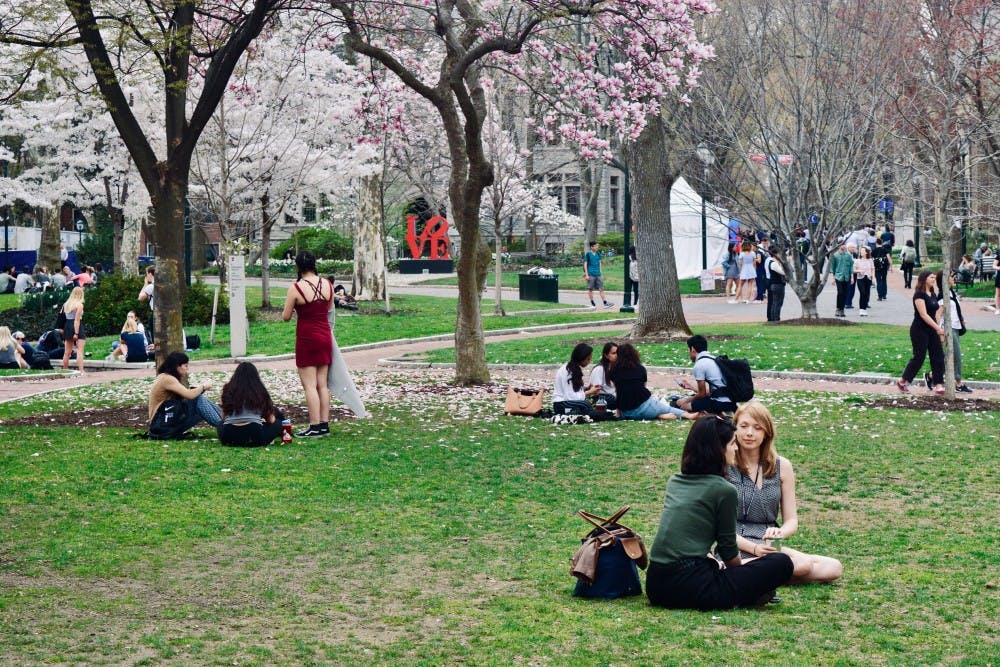
Penn President Amy Gutmann has stated that “understanding and appreciating diversity is one of Penn's most important priorities and is fundamental to success in today's world.” Penn advertises itself as diverse. On Penn’s website, a significant number of the pictures represent students from a variety of racial and ethnic backgrounds. Although the pictures tend to be candid, these photos are not an accurate representation of diversity at Penn.
When I think of diversity, I do not think of numbers or statistics. If I did, I would commend Penn for being more racially diverse than most of the K-12 institutions I attended. In the fall of 2018, 773 black, 1,085 hispanic, 2,208 Asian American, and 4,264 white people attended Penn’s undergraduate schools. Additionally, 1,339 international students attended Penn’s undergraduate schools. Ethnically, we were more diverse than the national average. So yes, comparatively and numerically, Penn is somewhat diverse.
But this is not the diversity I value nor the type of diversity the marketing pictures seem to suggest. When I think of diversity, I think of inclusivity.
Let’s first return to those stereotypical, racially diverse photos plastered all over Penn’s website. What makes those shots perfect for marketing is the fact that each student is either smiling or laughing. A shot with even one disengaged student would not have made the cut. Not only do these photos suggest that those smiling students work well together, but more importantly, the photos suggest that they are friends.
Now, let's look at Penn. The best place to evaluate inclusivity is not necessarily in the classroom but outside of the classroom, particularly in social settings. It is no secret that certain frat parties are racially exclusive. If we truly were those smiling students in the photos, we would be more welcoming and inclusive. When I walk outside and see college students, I rarely see friend groups of different races. For the most part, the Asian girls are with other Asian girls and the white guys are with other white guys. While the students in those photos are inclusive, Penn students are not. The next time you walk around, evaluate how diverse Penn truly is. I promise you that you will not see those marketing photos. To make those photos a reality, change lies in the students.
First, it is important to recognize that someone being racially, ethnically, or culturally different from you does not equate to them having nothing in common with you. It’s common to gravitate towards those who look like us and not even consider a friendship with those who don’t. In fact, we tend to see someone and point out their differences. For most of high school, I went to a diverse boarding school and lived with, spoke to, and learned from people of very diverse backgrounds. But I would not have been able to become friends with them if I was stuck on our apparent physical differences. Try to fight your instincts. Try to reach out to that person who you think is nice and actually get to know them.
As Gutmann once stated, “the diversity of our university must reflect the diversity of the world around it — and the diversity of the world that we want our students to lead.” That being said, the only way to truly understand someone of a different race or from a different country is to develop a relationship with them. Capitalize on the fact that you are at an institution with people of different races, values, and home countries and engage with your community.
So take a moment to think about your friends at Penn. Not the ones you talk to here and there in class, but the ones you go out with on Saturday nights. Are you making the most of your Penn experience? Can you see yourself in a stereotypical marketing photo? Or are you off to the side, talking to someone who looks just like you?

EMILIA ONUONGA is a College freshman from Middletown, Del. studying Philosophy, Politics, and Economics. Her email address is eonuonga@sas.upenn.edu
The Daily Pennsylvanian is an independent, student-run newspaper. Please consider making a donation to support the coverage that shapes the University. Your generosity ensures a future of strong journalism at Penn.
Donate






